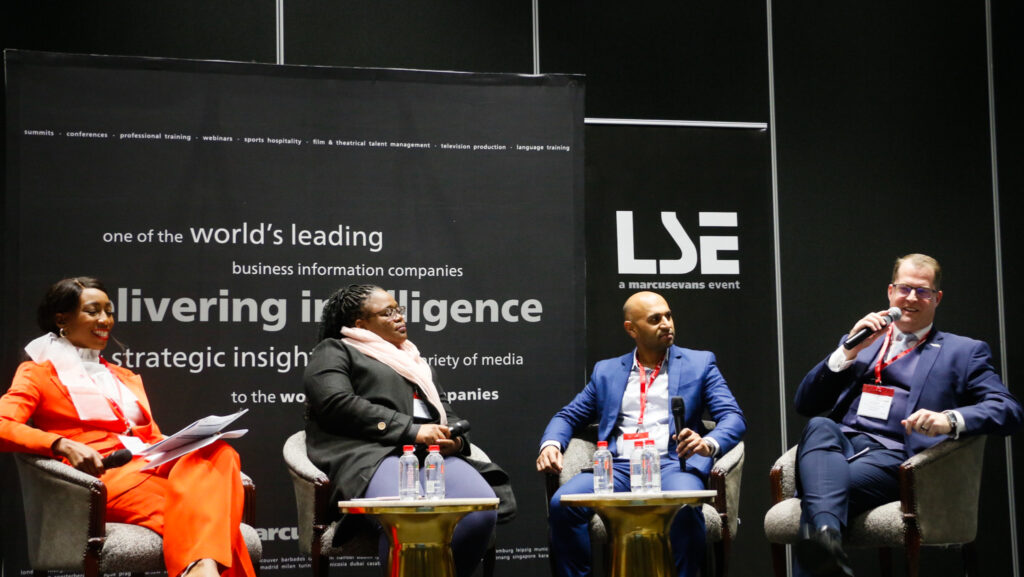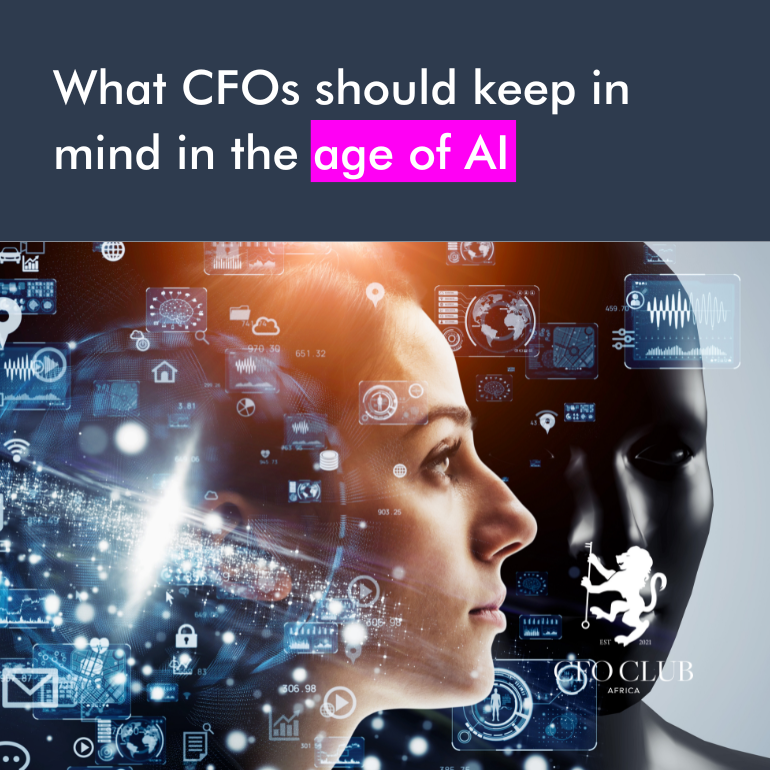Written by Leigh Schaller
At the recent CFO Africa conference, four CFOs shared their thoughts on managing the tech transitions and whether AI poses an existential threat to CFOs.

CFOs (from left) Chengai Ruredzo, Veliswa Rozani, Averen Deonanan and Scott Farrell discuss the role of automation in the CFO landscape at the CFO African Conference in Johannesburg.
Will tech replace CFOs and accountants? This is unlikely as long as CFOs embrace and adequately manage the disruption, according to a recent panel discussion between CFOs at the CFO Africa conference.
The panel, led by Scott Farrell from B.Braun Group, included:
- Averen Deonanan from Flight Center Travel Group;
- Veliswa Rozani, NMI-Durban South Motors; and
- Chengai Ruredzo, ACCA
Center people in your technology plans
The panel highlighted risks of where tech integration goes wrong, especially when limited buy-in or training exists.
“I’ve seen so many finance teams, be they students or chartered accountants, pick up the phone and say, ‘We’re in trouble. Our CFO has got this new shiny toy, this new software. We’ve had no training. No one understands how it works, so we’re just going to ignore it’,” says Ruredzo.
Ruredzo says CFOs must seek their teams’ input early rather than dumping a new technology on them. “Say to them, ‘This is what we’re thinking of doing. What do you think?’ When you bring people in early, they’re more willing to receive and to adapt to the new technology.”
Rozani says CFOs should remember that people are generally viewed as a company’s biggest asset when making tech decisions.
“I’m asking people as we bring out technology and automation, ‘What is it exactly that gives you sleepless nights? What would make your job better? How do we take this technology and use it to enable our environment rather than to disrupt?’
“Because if [staff are], you know, fidgety and insecure, then you will get even less from them than on any other day.”
You still need personal relationships and soft skills
Deonanan used the example of debtor clerks who need to obtain customer payment to show how human-to-human skills remain essential even with basic accounting tasks.
“A software solution that sends an email out in South Africa that is going to get ignored. You need the person behind it who’s motivated to add value in the business,” says Deonanan.
“Technology will easily replace us if we remain on an 8 to 5 [mentality]. But if you’re looking to actively add value in the business, in whichever role we’re in, then I think there will always be a need for that.”
Deonanan also emphasises the need to continue adapting as a professional.
“In the past, it might be that having a certain degree behind your name, but now the demand for people like data engineers and BI [business intelligence] engineers is immense that you’re getting poached left, right and centre. So, whilst there is job loss, there’s also creation at the same time. And we have to be flexible in adapting to those opportunities.”
It’s time to move from bean counter to bean maker
Rozani believes accountants and CFOs need to shake off the bean counter reputation and embrace roles as bean makers.
“I was fortunate to have gone into a business partnering role very early in my career. At that time, I worked for Microsoft. Nothing happened locally, everything happened overseas unless you were able to be a business partner, you were irrelevant.”
Rozani believes narratives are essential to make sense of the numbers.
“What is the story behind the numbers? To be a business partner, you have to know the story because if you don’t understand the business, it’s difficult to come up with a story,” says Rozani.
“None of us likes repetition. We don’t want to pass the depreciation journal every month – no one does… We want to get data, and we want to draw some insight and make business decisions from the data, and I think that’s where technology collaborates and enables us.
“Does it mean we won’t have jobs? I don’t necessarily think so, but it certainly means we need different skills to stay relevant in our jobs.”

